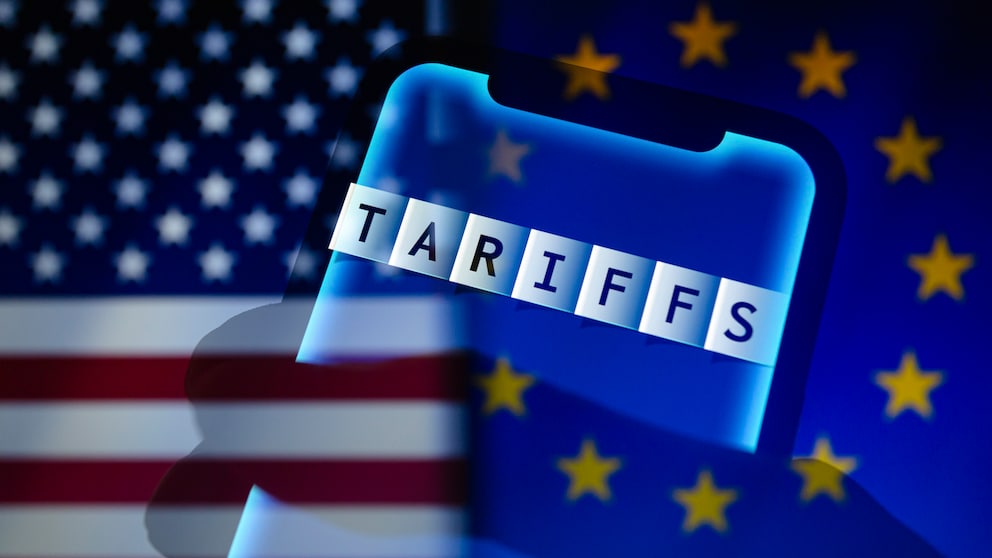March 30, 2025, 9:24 am | Read time: 3 minutes
The EU is considering retaliatory measures against US internet companies in response to the special tariffs imposed by Donald Trump. The US benefits from a high surplus in the services sector — now fees or new taxes for companies such as Google, Meta, and PayPal could come into play.
US President Donald Trump is planning new import tariffs on cars from the EU. The EU Commission is examining countermeasures, including possible levies on digital services from American companies. There is also the question of whether a negotiated solution can be found or whether a trade conflict is inevitable.
EU Could Target US Internet Companies
In view of the special tariffs imposed by Trump, the EU Commission is examining possible countermeasures. Bernd Lange, Chairman of the Committee on International Trade in the European Parliament, referred to the US’s economic interest in the European market: “The US has a surplus of 100 billion in the services sector.” Fees on the activities of companies such as Google, PayPal, or Meta are being discussed as possible retaliatory measures.
New US Tariffs Hit Germany in Particular
The new US import tariffs will affect European car imports in particular, with Germany being especially affected as an export-heavy nation. The EU Commission is, therefore, considering various reactions, including counter-tariffs, restrictions on public contracts, or the suspension of patents. Lange emphasized: “First put the weapons on the table, and then we can negotiate. It is absolutely clear that we will not allow ourselves to be blackmailed.” At the same time, a diplomatic solution is not ruled out.
Germany Hopes for Negotiations — Digital Tax as Leverage?
While the EU Commission is examining various options, the German government is continuing to focus on talks with the USA. Government spokesperson Steffen Hebestreit explained: “At the moment, we are still hoping to reach agreements in talks with the United States that could possibly avert a trade war.” At the same time, no option has been ruled out: “I would say that nothing is being taken off the table at the moment.”
A digital tax is being discussed as a possible response to exert pressure on the USA. However, the German digital association Bitkom warns of the economic consequences: “A digital tax in response to US tariffs would inevitably drive up costs for users in Germany and Europe and also affect commercial customers.” Companies, administrations, and citizens, in particular, are dependent on US providers in many areas.
China Calls for Global Cooperation
As the trade conflict between the USA and the EU intensifies, China’s President Xi Jinping received around 40 top international managers in Beijing, including leading representatives of German companies such as Mercedes, BMW, Siemens, DHL, and ThyssenKrupp. Xi emphasizes: “We must work together to maintain the stability of global industry and supply chains, which guarantee the healthy development of the global economy.” He called for no measures to be taken that could harm the global economy.

Scandal Surrounding Social Media Portals Facebook and Instagram Abolish Fact-Check Program

Manufacturers Must no Longer Isolate Themselves Editor on New EU requirements for Apple: “This Goes Too Far!”

Trade securities free of charge These are neobrokers – this is what makes them different
US Tariffs Could Affect Other Industries
In addition to the automotive industry, other economic sectors could also be affected by additional US tariffs. According to Bernd Lange, Trump has already indicated that copper and semiconductors could also be targeted in addition to timber and pharmaceuticals. “In principle, there could be tariffs against all countries with a trade surplus,” says Lange.
It remains to be seen whether the EU will go on a confrontational course with the USA or find a diplomatic solution. What is certain, however, is that the EU Commission is examining all options — and could also target American internet companies.
With material from Reuters

